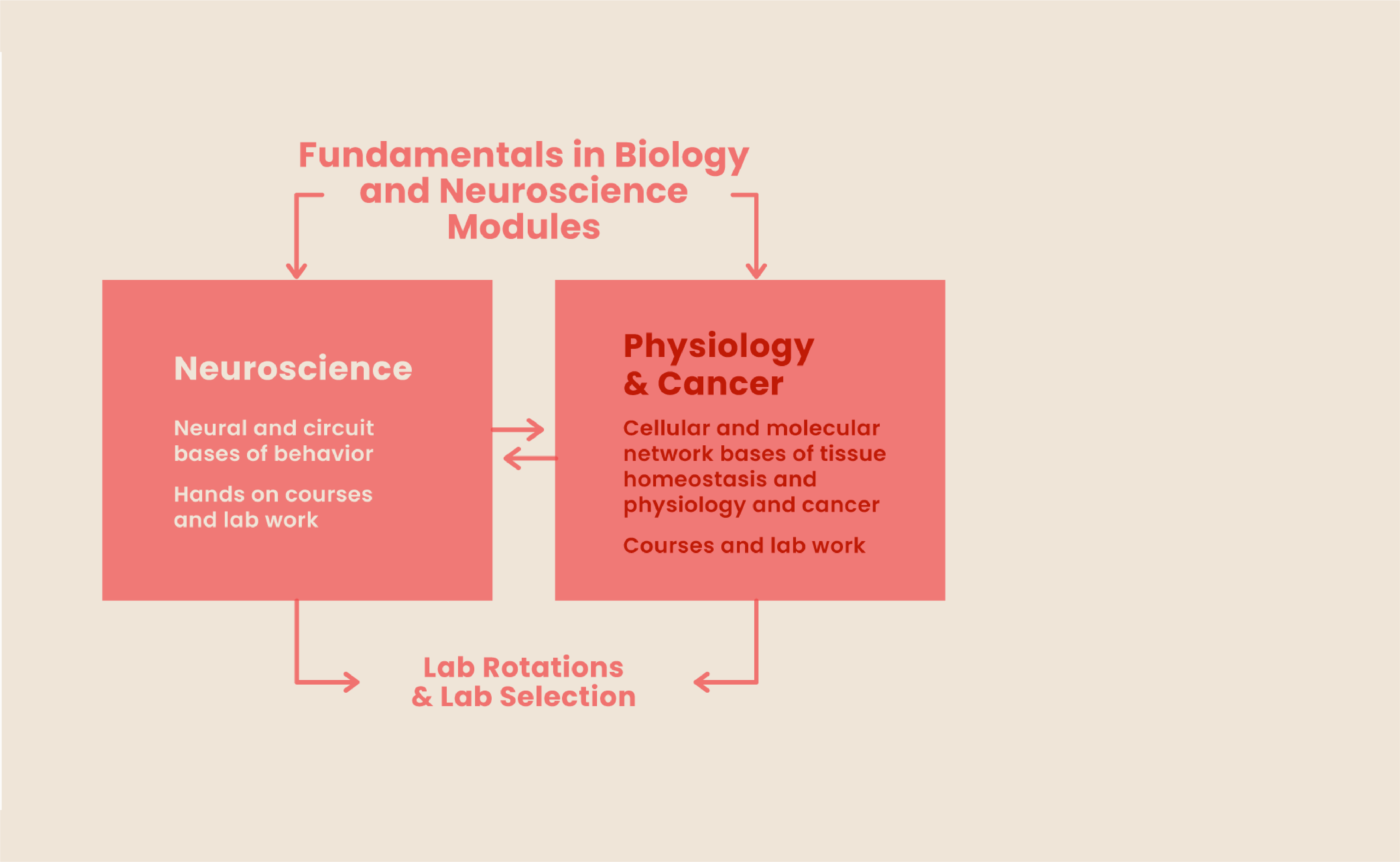- Graduate Training
INCDP programme
Summary
The International Neuroscience and Cancer Doctoral Programme (INCDP) provides students with an integrative, state-of-the-art education in either Neuroscience or Physiology & Cancer. A central goal of the programme is to foster inquiry and discovery by encouraging active participation, critical thinking, and problem-solving by the students. After an intense course work period, training is focused on graduate research work. Rotations in several labs of choice will allow students to get acquainted with the research being conducted in different laboratories before selecting a group and research project.
Degrees are granted by our academic partners, the Universidade Nova de Lisboa or the Instituto Universitário de Ciências Psicológicas, Sociais e da Vida through our accredited INDP doctoral track.
Our Students, Our Team
INCDP
We seek talented students to work in a supportive, inclusive, and collaborative environment that trains individuals to participate in the process of scientific inquiry leading to discoveries. Emphasis is given to diverse thinking, positive behaviour support, and well-being as core elements for creativity, critical thinking, and leadership.
Programme Director: Joe Paton
Education Committee: Ana Luísa Correia (Cancer & Physiology PI), Alfonso Renart (Neuroscience PI), Bruno Costa-Silva (Cancer & Physiology PI), and Susana Lima (Neuroscience PI)
Graduate Studies Office: Miguel Seabra (Coordinator), Teresa Dias, and Joana Saraiva
Inquiries regarding INCDP applications must be sent to: appindp@research.fchampalimaud.org
Close Mentorship
INCDP
Mentoring is not a fixed equation, and it requires learning about how each student got to where they are today. As mentors, we guide students to conduct high risk/high gain research, and to become independent scientists while reaching their full potential as individuals. Students come from all over the world and from a range of backgrounds, including the life sciences, physics, psychology, mathematics, and computational sciences.
Each student is supported by a Thesis Committee, selected by the students, composed of two Faculty members other than the supervisor. In addition, students have a task force that is self-organised and communicates issues regarding their life at CR with the programme leaders. Every year, students meet with the CR Scientific Advisory Board, and with the Graduate Programme’s Scientific Advisory Board.
Admission Requirements
INCDP
Applicants must hold a Master’s degree and/or a 4+ year undergraduate degree by the time classes start. Successful applicants must demonstrate the ability to tackle difficult intellectual challenges, to learn new skills and ways of thinking and to work passionately as part of a research team. Predoctoral training in quantitative disciplines (e.g. physics, mathematics, computer science), biological sciences (e.g. biology, medicine, bioengineering) or related fields is preferred. High proficiency in the English language is crucial for the applicant’s success since this is the official language at the Champalimaud Research Programme.
When applying, students might choose whether they wish that their application be considered by the Neuroscience, the Physiology and Cancer track, or both. Applications from students that choose both will be evaluated by selection committees from both tracks. Preselected candidates will be invited to an open house for final selection. Top evaluated candidates will receive an offer to participate in the PhD program, which is nominally comprised of an initial year of classes and rotations followed by research in the selected lab. Students will apply for fellowships as part of the curriculum, but success in acquiring external fellowships is not required. In general students are expected to join the program associated to a single track, with the possibility of mixed training on Neuroscience, Cancer and Physiology during the first year.
The Champalimaud Center offers a vibrant academic environment including weekly scheduled international guest seminars, cutting-edge core facilities, and interactions with cancer clinic and psychiatry researchers.
We do not have an open call at this moment, but if you are interested in receiving updates on future calls, please fill out this form.
Inquiries regarding INDP applications must be sent to: appindp@research.fchampalimaud.org
Timeline
INCDP
2022 INPDP application timeline
Open call: December 6, 2021 - January 9, 2022
Interviews and open house: January 24 - 28, 2022
Final results: February 7, 2022
Candidate acceptance deadline: 2 weeks after the final results announcement
INPDP 2022 edition starting date: September 12, 2022


